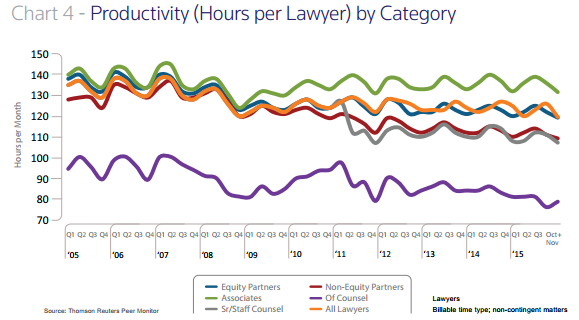You are currently browsing the archives for Kyle McEntee.
The Applicant Plunge Is Not a PR Problem
The following was part of a series published by the National Law Journal called Law Schools Are Losing Smart Applicants. How Do They Lure Them Back?” The NLJ asked 11 people from inside and outside the legal academy for responses, including me and Debby Merritt. Her response has been republished here.
The applicant plunge is not a PR problem. Schools cannot just demonstrate and appeal to a lifetime wage and opportunity premium. Although applicants expect both, people do not typically make standard investment analyses. Applicants consider a variety of factors, key among them that student loan repayment begins only six months after graduation.
I can’t say I blame them. Monthly payments for borrowers without family support exceed $3000 at several top law schools, even with a generous scholarship. Significant student debt undermines aspirations college graduates have for their 20s and 30s: a fulfilling career, home ownership, marriage and kids, active community participation, financial freedom. Massive debt also deeply affects students on a psychological and emotional level.
Law schools need to substantially lower prices so student debt stops scaring so many applicants away. Safety nets like income-based repayment make worst-case scenarios tolerable, but do little to quell concerns related to quality-of-life aspirations. Tuition increases have been internally justified for decades on the belief that law school was a great deal. But until law schools account for how today’s applicants think about their future, too many potential lawyers will make other arrangements—maybe to their detriment, but certainly to the legal profession’s.
LST Reports Updated
As Debby pointed out, the ABA just released the latest employment statistics. Each school’s report is on the ABA website and their own website, but it’s not easy to compare schools in a giant spreadsheet, either with each other or year over year. I just updated the LST Reports with all the new data. These comparisons are easy using our tools.
Charlotte School Of Law Should Be More Transparent, Immediately
 Ed. note: This post was co-authored with David Frakt, an attorney and the chair of Law School Transparency’s National Advisory Council. This was originally published on Above the Law.
Ed. note: This post was co-authored with David Frakt, an attorney and the chair of Law School Transparency’s National Advisory Council. This was originally published on Above the Law.
The United States Department of Education (ED) notified Charlotte School of Law on December 19, 2016, that its students would no longer be eligible for federal student loans. The decision, as with the American Bar Association’s decision to put CSL on probation a month earlier, surprised and alarmed CSL students. Since that time, students have reached out to law schools across the country to inquire about attending in the immediate or near future. With no other law schools in Charlotte, North Carolina, there are practical limitations on the choices CSL students face.
Several students report to us that, despite CSL’s assurances, information has been both limited and not particularly useful as they try to assess their options. Furthermore, these students report that administrators have been unavailable to answer questions. The school appears to have completely shut down for winter break from December 22 through January 3 despite the urgency of the situation that has developed in Charlotte. These administrators have likewise not been available to the press since the Education Department’s announcement in December.
It is not yet clear that the school will resume classes on January 9, as scheduled. And even if the school does resume operations next week, students still have an understandable desire to explore available options.
In theory, students have four options.
- Continue their classes at CSL. These students would need to cover the more than $22,000 in tuition and fees per semester with a combination of discounts from the law school, cash, and private student loans.
- Pause their legal education. Rather than rush into a decision based on incomplete information, students may wish to take a semester off and weigh their options. Under ABA rules, students have up to 84 months within starting law school to obtain all the credits to earn their JD.
- Visit at another law school. Students may attend another law school that accepts them as a visitor. They would need to cover tuition and fees at the new school in the same way as they would at CSL — without federal student loans. Some students may be able to complete their degree requirements as a visitor. Otherwise, they may return to CSL (if open) or transfer, though they may lose some credits.
- Transfer to another law school. A transfer to another law school would likely be a permanent move. The school’s latest communication to students indicates a pending arrangement with Florida Coastal School of Law (likewise owned by Infilaw) that would guarantee transfer to Coastal. For students with low grades or on academic probation, this may be the only available option. Students wishing to attend another law school will need to obtain admission through the target school’s standard transfer application process.
At this point, CSL students cannot make informed decisions because CSL has not been sufficiently transparent. As such, Law School Transparency has sent CSL a letter with an urgent request for information that will help CSL students make the choice that is best for their personal career ambitions.
Infilaw, which owns Charlotte School of Law and Florida Coastal School of Law, must be transparent about any pending or reasonably foreseeable ABA sanctions at Florida Coastal. As CSL develops its plan for CSL students to transfer to Coastal, they must ensure that CSL students are fully informed about Coastal’s compliance with ABA standards. Students need and deserve to know about the potential for similar problems to emerge at Coastal.
In November, the ABA placed CSL on probation because of its exploitative admissions and retention policies. Coastal’s admissions statistics are not meaningfully different than CSL’s. The majority of students at both schools face extreme risk of failing the bar exam. These two schools also have the highest attrition rates in the country. It’s possible that the ABA has already warned Coastal that it is out of compliance with the ABA standards, much in the way that the ABA warned CSL in February 2016. Indeed, Coastal’s dean announced the school’s intent to raise admissions standards this past fall. Infilaw should disclose any communications from the ABA that in any way indicate potential sanctions against Coastal, including fact-finding inquiries that the ABA will use to evaluate whether the school has sound admissions and retention policies and practices.
Infilaw should be transparent about communication with the U.S. Department of Education regarding Florida Coastal School of Law’s continued participation in the federal student loan program. The ED cited two independent reasons to deny CSL’s participation in the federal student loan program. First, the ED cited CSL’s non-compliance with the ABA standards. Second, the ED cited CSL’s “substantial misrepresentations regarding the nature of its academic program.” The ED based this finding, in part, on CSL’s failure to disclose until November 2016 that the ABA found the school non-compliant with the ABA standards in February 2016. If Coastal has received notice from the ABA about non-compliance, it has not disclosed it to date. That could provide a basis for the ED to take similar action against Coastal.
Coastal might be a reasonable alternative for some CSL students, but it is not fair or ethical or consistent with the school’s fiduciary duty to withhold this information from CSL students considering a transfer (or, for that matter, current Coastal students).
Infilaw should be transparent about its plans to facilitate transfers within the Infilaw System, including moving expense reimbursement, alternative class schedules, tuition discounts, and whatever else students need to ease the transfer after Infilaw and CSL withheld critical information for nine months. Even assuming that Coastal does not face any immediate issues from regulators, Infilaw and CSL should recognize that simply offering students the opportunity to attend another law school in the Infilaw system is not enough to discharge its legal and ethical obligations to students. This is especially true given Infilaw’s financial interest in moving students to one of its schools that has access to federal student loan dollars from one that does not.
Students who choose to relocate 400 miles from Charlotte to Jacksonville will incur substantial costs, including transportation costs, moving expenses, and early lease termination fees. Students who seek to join the bar can ill afford to have negative credit reports or collection actions taken against them for breaching a lease. It is essential that administrators promptly develop and communicate a fair, simple, and transparent approach for students to file for reimbursement.
Charlotte School of Law should clarify whether it will permit and facilitate students who seek to visit another law school this semester. At least a handful of current CSL students have inquired with other law schools about visiting this coming semester. As one law school in North Carolina told us, the obstacles to a visit are not with their school — they are prepared to promptly review and act upon any applications for a visit. Rather, the question is whether CSL will approve the visit, accept the credits towards CSL degree requirements, and waive degree requirements that cannot be met at the visiting school, such as the course on North Carolina distinctions.
The school has sent mixed messages to students about the possibility of visiting at another school. CSL should publish clear guidance on visits as soon as possible, and should do everything possible to facilitate visits for students who request them. We asked Traci Fleury, assistant dean of academic services, for clarification. She did not respond to our phone call.
Charlotte School of Law should devote more resources to student service and administrative offices. Completed applications, whether for a visit or a transfer, typically require a letter of good standing, an official transcript, and, for visits, a letter promising to accept credits from the visiting school. Students report to us that they are still waiting on one or more of these items from CSL. Dean Fleury indicated in an email to a student that a team of five people is working through transfer packets for students. But time is of the essence, and Infilaw schools have been accused of purposefully impeding transfers in the past. Thus the school needs to devote even more resources so that inattentiveness does not prevent students from making informed choices about their futures.
Charlotte School of Law should clarify why it indicated that the school will submit a “teach-out” plan to the ABA in March. A teach-out plan helps students find a reasonable opportunity to complete their program of study. The ABA accreditation rules require a teach-out plan for any school that loses access to the federal student loan program. However, Rule 34 also requires a teach-out if the school intends to cease operations. CSL has already informed students who had been planning to start this month that the “spring start” for which they had been admitted has been canceled. With deadlines for transfer and visits looming, and nearby schools preparing to begin classes as early as tomorrow, CSL should clarify whether the school plans to cease operations in the near future, or if it is even considering such a step, as this will obviously have an impact on the decisions that students make.
While we understand that the situation is fluid, and that the school’s plans may be contingent on a variety of factors that are outside of its control (such as regaining federal funding), CSL must not let uncertainty prevent timely release of information. If in doubt, CSL should err on the side of full disclosure and immediately release any information that could conceivably affect its students’ decisions.
LST Launches New Series about Women in the Law
I’m pleased to announce that Law School Transparency has a new show, Women in the Law—a podcast mini-series and related articles that examine the many professional and personal challenges that women continue to face as members of the legal profession.
The first theme is Hey Sweetie! Sexism in the Legal Workplace.
During the podcast (above), we hear from lawyers around the country about persistent sexist behavior, as well as the more pernicious implicit bias. During a roundtable discussion at Wake Forest University (below), six lawyers talk with the show’s producers about mistaken job titles, whether and how to respond to sexism in the workplace, and more.
We’ve also published several editorials on our partner websites.
- Bloomberg Big Law Business: Gender Bias in the Legal Workplace: Words Matter by Elizabeth Berenguer
- Above the Law: Sexism In The Legal Profession: Will It Ever End? by Staci Zaretsky
- The Girl’s Guide to Law School: Hey Sweetie: The Practical Impact of Sexism in the Legal Workplace (plus Podcast) by Gabriella Martin
- Massachusetts Lawyers Weekly: The Ceiling That Just Won’t Shatter by Melissa Levine-Piro
Stay tuned for new shows every week through the end of December. Future themes include the leaky pipeline, solutions, and women lawyers in the media.
LSAC Throws a Temper Tantrum
The Law School Admissions Council has thrown its latest tantrum.
In a letter to admissions professionals around the country, LSAC’s president, Daniel Bernstine, signaled that LSAC would stop certifying the accuracy of each law school’s LSAT and undergraduate GPA statistics. The certification is a joint effort between LSAC and the ABA to prevent law schools from lying about their admissions statistics.
LSAC agreed to certify admissions statistics in 2012 after months of roundly dismissing calls for certification. The group had claimed that certification would be cost prohibitive, despite nearly $60 million in total revenue in 2011 and a $10.7 million surplus in 2012. The group also claimed that certification was outside the scope of its organizational mission, despite its member law schools saying that LSAC was best positioned to protect the integrity of the admissions process.
Pressure mounted in 2011 and 2012 for LSAC to help the ABA after two law schools intentionally reported fraudulent data to the ABA and elsewhere, including to U.S. News and World Report for their annual law school rankings. In February 2011, Villanova University School of Law reported that an official at the law school intentionally reported fabricated LSAT and GPA statistics for an unknown number of years prior to 2010. Later that year, the University of Illinois College of Law admitted to intentionally fabricating the same statistics over a seven-year period. The school’s assistant dean for admissions and financial aid, Paul Pless, resigned as a result of the controversy.
This tantrum is LSAC’s second one this year. Both came after the University of Arizona James E. Rogers College of Law announced that the school would allow applicants to submit GRE scores in place of LSAT scores.
At that time, LSAC threatened to strip Arizona of its membership, which would eliminate access to a variety of services. LSAC walked back the threat in May after pressure from its membership and anti-trust concerns.
So why is the ABA now the latest recipient of LSAC’s retribution?
In response to law schools hoping to utilize the GRE as a non-exclusive alternative to the LSAT, which is designed and administered by LSAC, the ABA is examining whether the GRE meets Standard 503. That standard provides that schools must use a “valid and reliable admission test to assist the school and the applicant in assessing the applicant’s capability of satisfactorily completing the school’s program of legal education.” The LSAT is the only nationally validated test as of right now, though Arizona independently validated the GRE and other schools are trying to also.
(more…)
Law Books For The Price Of Printing?
Originally published on Above The Law.
 Law students spend between $3,000 and $4,000 on books during law school. For those that borrow, add another $1,000 on the 10-year plan or $2,000 on the 20-year plan. While a drop in the bucket compared to tuition and living expenses, $4,000 to $6,000 for books is not insignificant.
Law students spend between $3,000 and $4,000 on books during law school. For those that borrow, add another $1,000 on the 10-year plan or $2,000 on the 20-year plan. While a drop in the bucket compared to tuition and living expenses, $4,000 to $6,000 for books is not insignificant.
Shaving these costs down to the cost of printing is a common suggestion, but it does not appear to have been done at scale. In a new article in the Saint Louis University Law Journal, Professor Ben Trachtenberg from the University of Missouri School of Law outlines how to actually do it with the goal of encouraging action.
The question is: will it happen?
(more…)
» Read the full text for Law Books For The Price Of Printing?
Did Firms Raise Salaries High Enough?
Originally published on Above The Law.
 Deborah Merritt, a law professor at the Ohio State University, published an informative analysis on her blog yesterday about the new market rate salary for large law firms, which has been extensively covered here on ATL.
Deborah Merritt, a law professor at the Ohio State University, published an informative analysis on her blog yesterday about the new market rate salary for large law firms, which has been extensively covered here on ATL.
To her and virtually every other observer, the increase to $180,000 signals that many large firms are prospering. In part the increase reflects a small but steady increase in associate productivity since 2008, reaching roughly the levels from the last market rate increase in 2007. The following chart is from the 2016 Report on the State of the Legal Market, issued by Georgetown Law’s Center for the Study of the Legal Profession:

Associates are continuously more productive by this measure than any other category of worker, although at lower billable rates than partners. Interestingly, the gap in productivity between associates and other groups is significantly greater post-recession.
(more…)
» Read the full text for Did Firms Raise Salaries High Enough?
Caveat Venditor: Throwback To The Days Of Junk Employment Statistics
Originally published on Above the Law
 Welcome to the second installment of Caveat Venditor, a series that assesses claims made by law schools to separate truth from fiction. This week we look at Brooklyn Law School’s employment rate of 92.2% posted on its “By The Numbers” infographic.
Welcome to the second installment of Caveat Venditor, a series that assesses claims made by law schools to separate truth from fiction. This week we look at Brooklyn Law School’s employment rate of 92.2% posted on its “By The Numbers” infographic.
I noticed this claim on Brooklyn’s website after investigating the concern of a prelaw advisor. At the quadrennial Pre-Law Advisor National Council conference, this prelaw advisor asked what to do when a law school does not meet the accreditation requirements by not publishing the required disclosures. Indeed, Brooklyn was publishing an old report nearly six months after the ABA required them to publish its new one. Brooklyn remedied this problem on Monday, citing an “oversight due to transitions in several administrative departments in the last year.” According to a spokesperson from the law school, the ABA did not follow up with the law school to make sure it published the materials on time or at all.
(more…)
» Read the full text for Caveat Venditor: Throwback To The Days Of Junk Employment Statistics
About Law School Cafe
Cafe Manager & Co-Moderator
Deborah J. Merritt
Cafe Designer & Co-Moderator
Kyle McEntee
 Law School Cafe is a resource for anyone interested in changes in legal education and the legal profession.
Law School Cafe is a resource for anyone interested in changes in legal education and the legal profession.
Around the Cafe
Subscribe
Categories
Recent Comments
- on Scholarship Advice
- on ExamSoft: New Evidence from NCBE
- on COVID-19 and the Bar Exam
- on Women Law Students: Still Not Equal
- on Ranking Academic Impact
Recent Posts
- The Bot Takes a Bow
- Fundamental Legal Concepts and Principles
- Lay Down the Law
- The Bot Updates the Bar Exam
- GPT-4 Beats the Bar Exam
Monthly Archives
Participate
Have something you think our audience would like to hear about? Interested in writing one or more guest posts? Send an email to the cafe manager at merritt52@gmail.com. We are interested in publishing posts from practitioners, students, faculty, and industry professionals.
 More than 90 law school deans have
More than 90 law school deans have